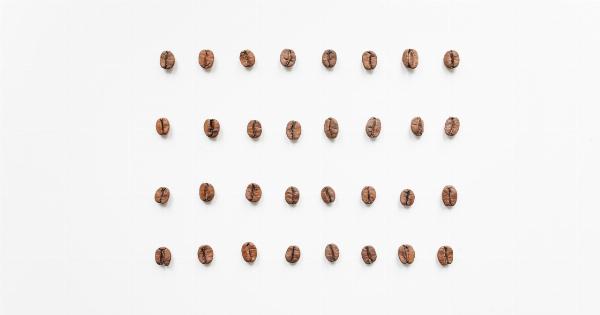Alcohol consumption is a common practice in many cultures across the world.
While moderate drinking may have some potential health benefits, excessive and long-term alcohol use can lead to severe health complications, especially in relation to liver health. The liver, which plays a vital role in detoxification, metabolism, and various bodily functions, can suffer extensive damage as a result of alcohol abuse. In this article, we will discuss the risks of drinking and how alcohol can cause liver damage.
The Liver: Anatomy and Function
Before delving into the effects of alcohol on the liver, it is crucial to understand the liver’s anatomy and fundamental functions.
The liver is the largest internal organ in the human body, located on the right side of the abdomen, beneath the diaphragm. It performs various functions, including:.
1. Metabolism of Nutrients and Toxins
The liver metabolizes nutrients from the food we consume and converts them into forms that can be readily used by the body. It also helps in the elimination of toxins, including alcohol, medications, and other harmful substances.
2. Storage of Vitamins and Minerals
The liver acts as a storage site for important vitamins and minerals, such as vitamins A, D, E, K, and B12, as well as iron and copper.
3. Production of Bile
The liver produces bile, a substance essential for the digestion and absorption of fats. Bile is stored in the gallbladder and released into the small intestine when needed.
4. Regulation of Blood Sugar Levels
The liver plays a crucial role in maintaining stable blood sugar levels by storing excess glucose as glycogen for later use and releasing it when the body needs an energy boost.
The Effects of Alcohol on the Liver
When consumed in moderate quantities, the liver can effectively process alcohol by breaking it down into less harmful byproducts.
However, excessive and chronic alcohol consumption overwhelms the liver’s capacity to metabolize alcohol, leading to liver damage. The detrimental effects of alcohol on the liver include:.
1. Fatty Liver Disease
One of the initial stages of alcohol-induced liver damage is the accumulation of fat in the liver cells, known as fatty liver disease or steatosis. This condition is reversible if alcohol consumption is stopped early on.
However, continued alcohol abuse can progress this condition to more severe forms.
2. Alcoholic Hepatitis
Alcoholic hepatitis is an inflammation of the liver that follows years of heavy drinking. It is characterized by liver cell damage, inflammation, and potentially irreversible scarring.
Symptoms of alcoholic hepatitis can range from mild to severe and may include jaundice, abdominal pain, and liver enlargement.
3. Cirrhosis
Cirrhosis is the advanced stage of alcohol-induced liver disease, where healthy liver tissue is progressively replaced by scar tissue.
In this stage, the liver loses its ability to function properly, leading to numerous complications such as fluid accumulation, bleeding disorders, and liver failure. Cirrhosis is irreversible, and the only treatment option is liver transplantation.
Other Alcohol-Related Liver Conditions
In addition to fatty liver disease, alcoholic hepatitis, and cirrhosis, alcohol abuse can also contribute to other liver conditions such as:.
1. Alcoholic Fatty Liver Disease (AFLD)
AFLD is a broader term that encompasses various stages of liver involvement due to alcohol abuse. It includes fatty liver disease as well as more severe conditions like alcoholic hepatitis and cirrhosis.
2. Fibrosis
Fibrosis refers to the excessive accumulation of scar tissue in the liver. While fibrosis is a precursor to cirrhosis, it is important to note that not all individuals with fibrosis will progress to cirrhosis.
Assessing the degree of fibrosis is crucial in determining the prognosis and treatment plan for individuals with alcohol-related liver disease.
Prevention and Moderation: Key to Liver Health
Considering the risks associated with alcohol consumption, it is crucial to adopt preventive measures and practice moderation to protect liver health. Here are some key measures to consider:.
1. Limit Alcohol Consumption
Follow recommended guidelines for moderate drinking, which generally means up to one drink per day for women and up to two drinks per day for men.
It is important to note that even moderate drinking can pose risks to certain individuals, such as those with underlying liver conditions or who are taking certain medications. Consulting with a healthcare professional is always advised.
2. Avoid Binge Drinking
Binge drinking, defined as consuming a large amount of alcohol within a short period, can significantly strain the liver and increase the risk of liver damage.
It is recommended to pace alcohol intake and avoid excessive quantities on a single occasion.
3. Seek Help for Alcohol Abuse
If you or someone you know struggles with alcohol abuse or addiction, it is crucial to seek professional help. Many resources, including support groups, counseling, and treatment programs, are available to those in need.
4. Maintain a Balanced Diet
Avoiding malnutrition is vital for liver health. A well-balanced diet that includes essential nutrients, such as vitamins, minerals, and antioxidants, can support liver function and overall well-being.
5. Regular Exercise
Engaging in regular physical activity can help maintain a healthy weight and reduce the risk of fatty liver disease and other metabolic disorders. Regular exercise also contributes to better overall liver health.
Conclusion
Alcohol consumption, especially in excessive amounts and over prolonged periods, can have severe consequences for liver health. Understanding the risks associated with alcohol abuse is crucial for making informed decisions about drinking habits.
It is important to remember that moderation, along with a well-balanced lifestyle, is key to maintaining a healthy liver and overall well-being. Seek help if needed, and prioritize your liver health for a long and fulfilling life.






























